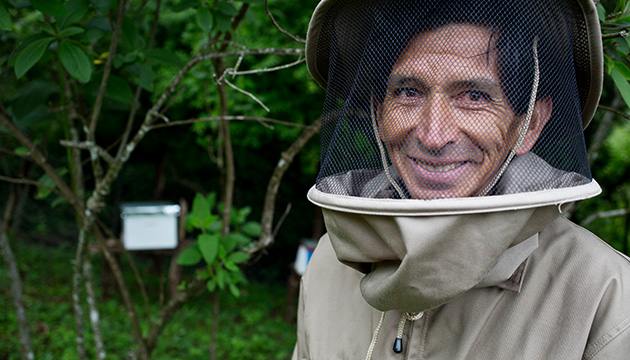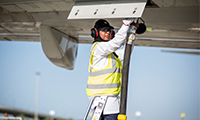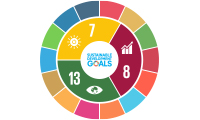Engaging communities
Shell has community feedback mechanisms at all major operations and projects to receive, track and respond to questions and complaints from community members, as part of our approach to managing human rights and providing access to remedy.
Our network of around 100 community liaison officers acts as a bridge between the local community and the business. During 2018, they were offered special opportunities to meet each other and collaboratively develop their skills. Together, the officers and the business that they represent aim to continually improve the effectiveness of community engagement, impact management and how we share benefits with the community.
For example, we have worked with the Weenhayek indigenous people near our La Vertiente operations in Villa Montes, Bolivia, since 2009, to implement a strategic development plan. The plan includes capacity building and improvements to infrastructure that improve community food security and support income-generating projects. To date, Weenhayek families have increased productive land from eight hectares to 29, and 72 community members have been formally certified as technicians in agriculture and beekeeping.

We are helping community members maintain beehives and produce honey at the Jaguar Camp, Tarija, Bolivia. Ivan, pictured, is part of the beekeeping project through the compensation scheme run by Shell.
Our work with the Weenhayek has also informed how we work with remote subsistence farmers near the Huacareta exploration project in Entre Rios, Bolivia. In 2018, we began developing sustainable social investment projects with 47 families. These projects aim to improve livestock security and health, and increase the production of fruit and vegetables through improved agricultural methods, including water storage and drip irrigation. We have also introduced beekeeping to 32 families, which we hope will generate a sustainable income through the sale of honey.
Community feedback
We have community feedback mechanisms at our operations and projects to receive, track and respond to questions and complaints from community members. This enables us to capture and resolve concerns quickly in a transparent way, and to track our performance locally and at a Shell group level.
Types of complaints received in 2018
by category
[A] Social also includes labour, local content complaints
Social complaints received in 2018
by category
[A] Benefits include Labour, Social Investment, Allegation of Unfair Treatment and Services provided by Shell or Contractor
Environmental complaints received in 2018
by category
 Our people
Our people
 Sustainable development goals
Sustainable development goals
 About our data
About our data
 Electricity
Electricity